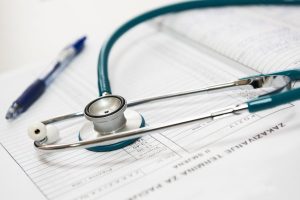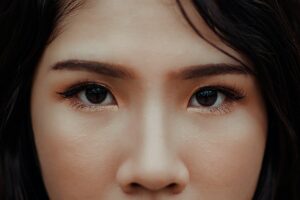The Future of Healthcare – Biosensing Wearables

Advances in technology are set to revolutionise the healthcare industry as we know it. The care and services that patients have come to expect, and the services that health providers are used to providing, are soon to be significantly overhauled. And these changes aren’t coming in 10 or 20 years, they are set to come in in the next few years.
So what are they?
You will have heard of a FitBit – that little activity tracker that sits on your wrist and records your data: how many steps you have taken, your heart rate, how many calories you’ve burned, the distance you’ve walked, even how many floors you’ve climbed.
Well say goodbye to it, because it will soon be a thing of the past, as the new era of wearables is ushered in: biosensing wearables.
Biosensing wearables are devices capable of monitoring a wide range of physiology, from your posture to brain activity. With the potential to supply healthcare providers with such an enormous amount of data, when will they try and implement them?
4 years apparently.
In 4 years time, it is predicted that biosensing wearables will be fully embraced into the healthcare system.
Of course it isn’t just the healthcare providers who have to get onboard with using these devices, patients, as consumers, also have to embrace the changing way they are dealt with by the healthcare industry. They will be expected to wear them 24/7, so they have to be convenient to use and easily operable. Points which are most likely already taken care of by the developers.
What are the advantages of biosensing wearables for the healthcare industry?
- Their immediate return on investment. The healthcare industry is focussed on population health, prevention and outcomes, so the data provided directly from patients wearing these devices, would feed straight into it. Thus enabling doctors to easily manage chronic diseases, through remote monitoring.
- They are useful to allow both patient and doctor to create a plan of healthcare, and to track outcomes.
- The information collected can instantly provide feedback to the healthcare professional, showing and tracking patterns and progress.
According to research, wearable biosensors that are capable of continuously monitoring vital signs will be instrumental in timely prevention, diagnosis, treatment and control of diseases.
Future of healthcare – other technological developments
Biosensing wearables are just one possibility for the future of healthcare, there are so many more out there:
- It has been predicted that in just over two years, 3D printing technology will be used in over 35% of surgeries.
- By 2035 we could be utilising more than just our standard fives senses to experience the world around us. As snakes use infrared to see in the dark and bats have sonic hearing, so we could potentially experience sound through feeling it, and observe microwaves through magnetic implants.
- Artificial intelligence will be integral to the diagnosis and treatment of chronic diseases such as cancer or diabetes. It can provide accurate, analysed and up to the minute data, and research, on advancements and breakthroughs in the medical arena.






